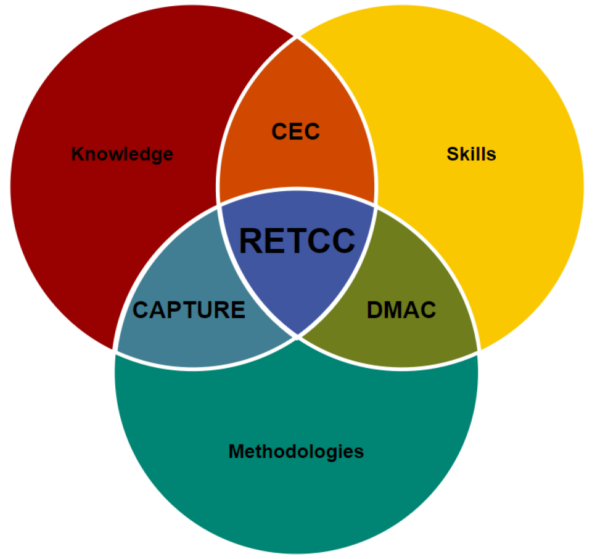Research Experience and Training Coordination Core (RETCC)
Co-Directors: Ranji Ranjithan and Antonio Planchart
Meet our trainees

Understanding the environmental and health implications of emerging pollutants requires an integration of numerous expertise, including knowledge in multiple scientific disciplines, methodologies in data science, and skills in community engagement. The broad mission of the RETCC is to train Center pre- and post-doctoral trainees to be fluent across disciplines, technologies, and communities and to be outstanding scientists capable of conducting high-impact research, independently and as part of a multidisciplinary team, to solve environmental health problems. In coordination with the activities of the per- and polyfluoroalkyl substances (PFAS) research Projects, Data Management and Analysis Core (DMAC), Analytical Core (CAPTURE), and Community Engagement Core (CEC), RETCC will develop and implement a comprehensive program for the trainees to become fluent across disciplines, technologies, and communities.
The goal of the RETCC is to offer activities that integrate and interweave with the activities of the Center, the PFAS research Projects, DMAC, CAPTURE, and CEC. These programs will involve authentic learning, focus on real-world projects involving PFAS, build communication skills, and increase fluency across disciplines and the integration of the trainees into the team science approach. RETCC will also provide training in data management and analysis by coordinating with DMAC and their short-courses on: computational toxicology; chemoinformatics; practical bioinformatics using R; and cluster computing. In partnership with CEC, RETCC will create opportunities for the trainees: to engage in environmental health literacy and citizen science; and to experience the role scientists have in improving environmental health literacy in communities impacted by PFAS. Trainees will participate in Center meetings where they will periodically present and discuss their PFAS research progress and findings and understand how their research integrates with the collective activities of the Center and the other Cores. Finally, trainees will develop an Individual Development Plan (IDP) which will serve as an evaluation and a professional development tool, allowing trainees to customize their professional development goals in an adaptive manner as they move through the training program.
To achieve this goal, RETCC has two specific aims:

Specific Aim 1: Provide trainees with cross-training and fluency across disciplines, technologies, and communities through: diverse research experiences; nanocourses; policy and risk assessment case studies; data management and analysis modules (in partnership with DMAC); multidisciplinary seminars and journal club; and engagement with communities affected by PFAS (in partnership with CEC).

Specific Aim 2: Provide trainees professional and career development by: creating opportunities to work across disciplines as part of a multidisciplinary team addressing PFAS-related problems and interact with engineers, epidemiologists, biologists, regulatory policy scientists, and community engagement professionals; providing workshops on soft skills including scientific research communication, proposal writing, and peer mentoring; and using an Individual Development Plan as an effective evaluation and career development tool.
This training program will involve authentic learning, focus on real-world projects involving PFAS, build communications skills, and increase fluency across disciplines and integration of the trainees into the team science approach.
Connect to the RETCC Moodle space for more information.
